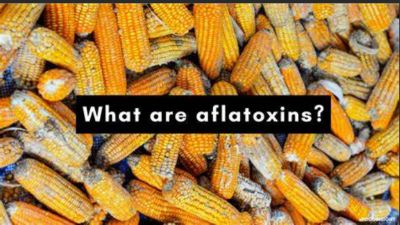News
How Concerned Should I Be About Aflatoxins in Peanut Butter?

Peanut Butter is something of a modern-day food obsession. Vegans, body-builders, and everyone in between seems transfixed by this high-protein spread, but in recent years peanut butter has come under fire in certain corners of the Internet for something called “aflatoxin”– which, when I first heard about it, freaked me out. As someone who grew up eating peanut butter by the jar, I wanted to know: What is aflatoxin, and should I be concerned about it?
Aflatoxins are poisonous, cancer-causing agents produced by molds that grow in soil, as well as in other decaying hay, grains, and vegetation that is brought to decompose as a result of improper storage. According to the Cornell University College of Agriculture and Life Sciences, “the occurrence of aflatoxins is influenced by certain environmental factors; hence the extent of contamination will vary with geographic location, agricultural and agronomic practices, and the susceptibility of commodities to fungal invasion during pre-harvest, storage, and/or processing periods. Aflatoxins have received greater attention than any other mycotoxins because of their demonstrated potent carcinogenic effect in susceptible laboratory animals and their acute toxicological effects in humans.”
According to the University of California Berkeley Wellness Center, peanuts sold inside the U.S. are not considered a problem, but you should still store them in a cool, dry place.
While the National Cancer Institute claims that exposure to aflatoxins “is associated with an increased risk of liver cancer” as well inflammation of the heart, increased food sensitivities, and autoimmune reactions, preliminary research from Johns Hopkins University suggests that there is a way to inhibit aflatoxin’s effects through a chlorophyll compound in green vegetables, such as spinach.
By and large, aflatoxin contamination tends to effect people who live in the developing world, in nations where corn and peanuts are staple crops. Aflatoxins enter the human body most commonly through consumption of contaminated plant products, or through consumption of meat and dairy products that come from animals who were exposed to contaminated feed. Workers who inhale dust generated by moving or handling contaminated crops are also at risk, and the highest-risk crops are corn, peanuts, and cottonseed (though aflatoxins are occasionally found in milk, cheese, almond figs, spices, eggs, and meat products).
Due to increased consumer awareness and demand for transparency (and concerns raised by peanut-butter lovers like myself,) the industry has enforced stricter regulations over the years just as the wellness world has suggested consuming certain foods and supplements in order to mitigate the effects. For those who eat a lot of corn and peanuts, Dr. Axe also suggests trying to counteract potential exposure by taking chlorophyll, milk thistle, dandelion root, or marshmallow root in supplement form.
A better, less invasive approach is to only buy nut butters from mass manufacturers (which is sad, we know, because we prefer to buy small-batch, local products when we can). Because bigger peanut butter manufacturers are highly regulated, the likelihood of a contaminated peanut crop making into the final product is less likely. (The FDA has established specific guidelines on acceptable levels of aflatoxins in human food and animal feed by establishing action levels that allow for the removal of violative lots from commerce.)
Aflatoxin exposure from peanuts can be controlled and reduced by visually checking nuts for moldy-looking, discolored, or shriveled specimens, which should be discarded (this isn’t like potatoes chips where the dark ones taste better; any discoloration could be a sign of harmful mold). In general, only buying nuts and nut butters that were produced (and thus regulated) in the United States is your best bet to avoid any unwanted exposure. According to the University of California Berkeley Wellness Center, peanuts sold inside the U.S. are not considered a problem, but you should still take care to store them in a cool, dry place (all the more reason to eat peanut butter right out of the fridge).
CATEGORIES
LATEST NEWS
CONTACT US
Mobile:+86-18612182039
Tel:+86-029-85274126
Whatsapp:+8618612182039
Email:info@watarbio.com
Add:No. 12, Hongzhuan South Road, Yanta District, Xi’an 710061, China
